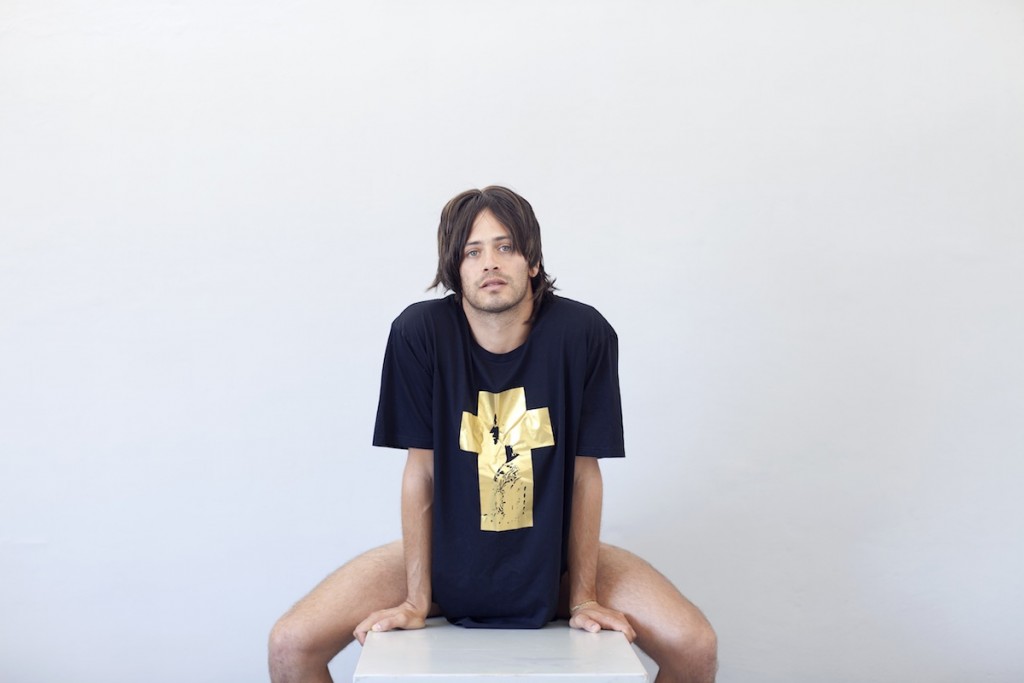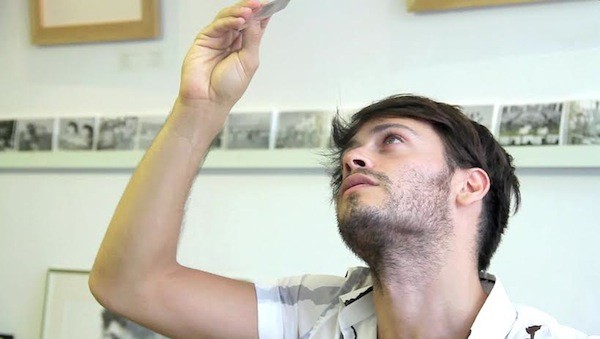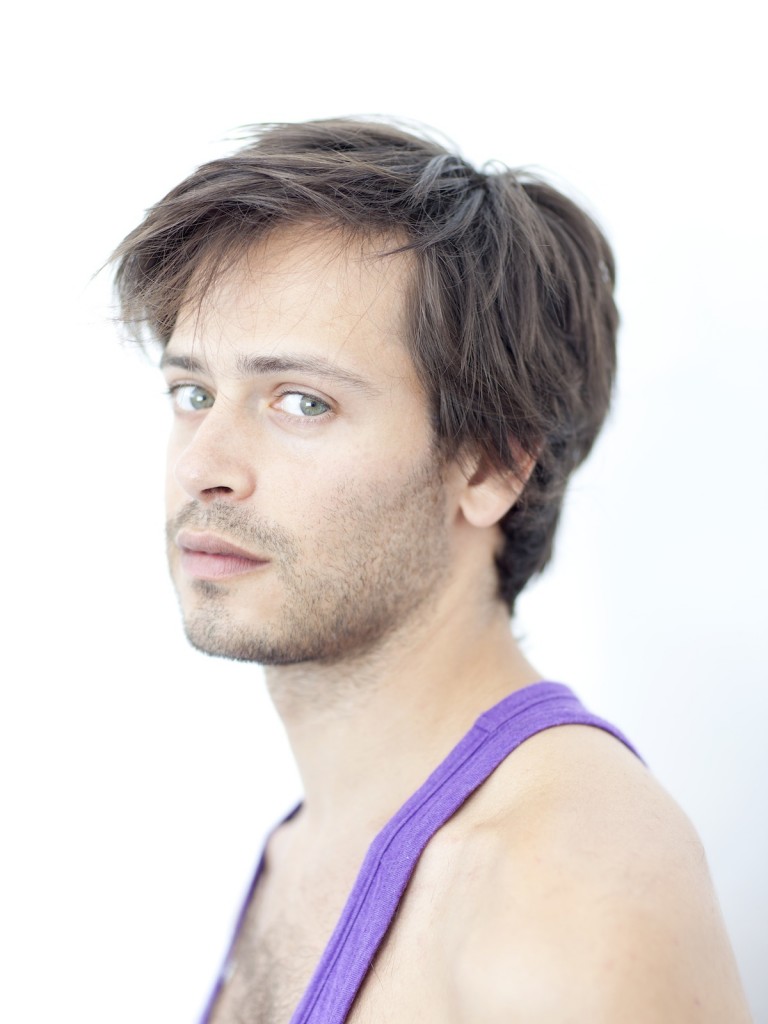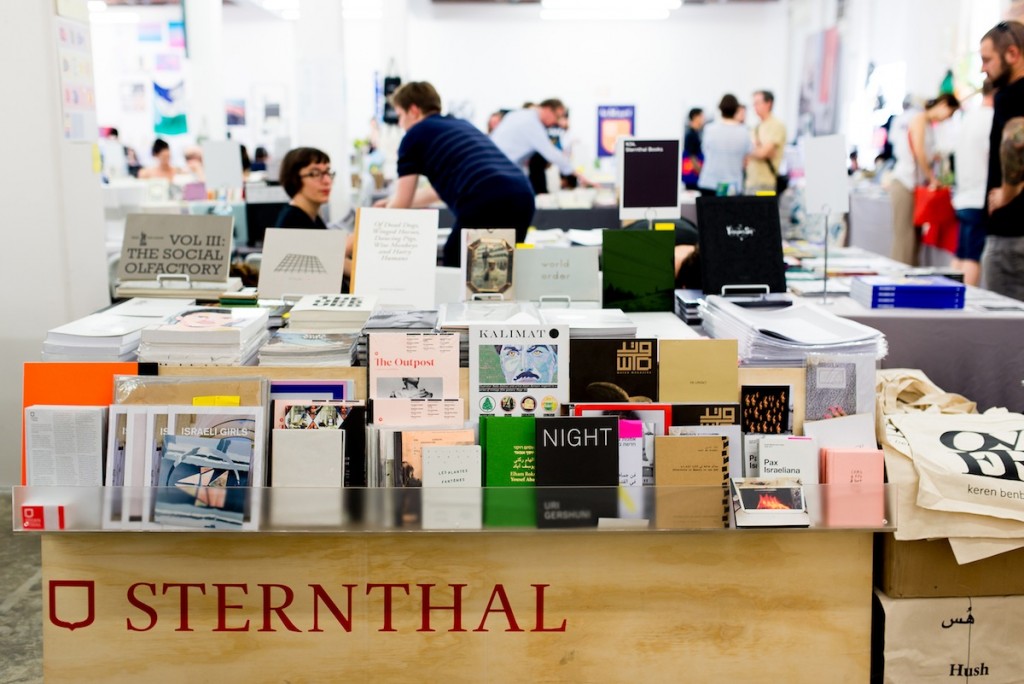Tell us your story in 10 lines with a specific focus on the cities that today you call ‘home.’
I was born and raised in Montreal. When I was twenty I moved to Paris to study art at L’Ecole de Beaux arts de Cergy. Before moving to Paris I started making collages which allowed me to articulate my desired identity as opposed to the one I had assumed. As a gay closeted teenager I was frustrated and art allowed me to communicate my desired identity. Paris played a influential role in my development – the appreciation of culture, the aesthetic beauty of the city, the social nature of everyday life, and the modesty left a mark on me.
I grew up in suburban Jewish Montreal, and being immersed in a different way of life showed me that I am not defined by my religion, race or, nationality.
Later on I did a Masters at The New School for Social Research in New York, after I started working on a book about art and cultural memory in Israel. I signed a publishing deal with Charta books from Milan to publish my thesis, but I had to cancel the contract due to their lack of transparency. It motivated me to open a publishing company, to help other artists create and share their work through printed matter. We don’t always connect the dots between past experiences and our present, but I realize I became for other people the person who wasn’t there for me. My publishing house and my work remain straddled between all of these places; I feel equally at home in New York, Montreal, Tel-Aviv, and Paris.
You as reader: which ways, which places and which needs?
Lately I haven’t had much time to read. I love reading in the bath, or on the beach, or in bed. I watch a lot of documentaries. I feel very oversaturated with information, and I often am looking to disconnect from the world of information. I recently finished a great book by a Nigerian author called Americanah, a novel by Chimamanda Ngozi Adichie which I really enjoyed. Both fiction and non-fiction help me to take vacations from my mind. Sharon Stone said once that her mind is like a bad neighborhood, and she shouldn’t go in there alone. Sometimes I feel the same.
The world of publishers today is slowing and furiously expanding at the same time – happening through a plurality of means (instant books, online pdf with multimedia teasers) and this seems to inform the ways you have developed your practice. Having a background as artist, why have you chosen to share peculiar and not mainstream products?
Until this point I have not thought commercially because I haven’t been interested in doing so. We are surrounded by so many things that we don’t really need, and I am not interested in making things just to make money. I guess it’s more important for me to feel I am contributing something of value to the world. I realize more and more that ‘popular’ ‘mainstream’ things are so because people connect to them, and that is an idea I am getting more interested in. I wouldn’t be able to rationalize putting so much effort into something I didn’t think was worthy or important. As for the digital and video focus, I recognize that the way we read is changing. And I think for anyone interested in communicating with people – it’s important to pay attention to these behavioural patterns. I see digital books as interactive screens which through video and hyperlinking totally blur the lines between TV, film, and print. I also see this as a tool that can deal with the overload of information that characterizes the world today. For example, I am really interested in getting involved with the refugee situation in Israel, where over 70,000 African migrants have sought sanctuary. When I look for information online about the issue – the information is very fragmented, and I realize that through a digital publication I could package all these sources into one container, and synthesize the existing information, and include my own perspective on this complicated question.
As a publisher do you prefer commissioned works, or the edgy, unexplored and unexpected?
I am personally always drawn to the edgy, the unexplored, the unexpected. I am an extreme person – I love drama, intensity, even danger to a certain extent. In terms of the work I publish – there is no distinction between things I commission and things I discover, except that commissioning also requires funding, and as a young entrepreneur I don’t always have the manpower or the resources to commission things I want to see exist in the world.
Apart from designing and publishing books and making people more aware of the power of the written word, what place do issues of the self and creative writing have in your domestic and private life?
I think these activities were very important for me during my teenage years, less so now. As an awkward acne-ridden gay teenager living in a homophobic community, I was mute and invisible. Beneath the opacity of my seemingly average exterior, however, a wild storm of emotion was brewing. I remember one day sitting in my suburban Montreal bedroom ruminating upon my own political impotencies. I picked up a pair of scissors and began cutting apart images from my sister’s fashion magazines as well as my own photographs, reconfiguring the fragments into new collages. The collages depict the forbidden things I longed for, and I would frantically hide them under my bed each time someone knocked on my door. Through montage I could be whomever I wanted. Me, prancing down a catwalk, screaming, with Kate Moss’s decapitated head dangling from my arm while a variety of famous faces look on with envy. In another collage I stand screaming, half naked, wearing female legs and a large piece of phallic jewelry glued over my crotch. A bevy of bodiless legs scurry around me while a 40’s film star looks coyly in my direction.
Creating the collages allowed me to transform myself. It wasn’t that I actually became my fantasy; it was that I dared to express it. Artistic representation offered a space free of co-optation, where I could take control of who I wanted to be and how I wanted to be seen. Through the articulation of a life and identity I longed for, I accrued a confidence that transformed me from a passive shadow of a person into an active agent. I used art to explode stifling social conventions because I had no other tools at my disposal.
This experience opened my eyes to the political function of making artworks in a way that has forever changed the way I look at art. Artistic expression allows disenfranchised people to transform their identities. The politically incapacitated can never be completely silenced. Oppression and poverty may reduce our chances of being seen and heard, but people find ways of articulating their fantasies and, when they do, a seed is planted that has very powerful implications.
It seems you prefer to especially publish books related to Israeli authors and of course you declare that your books are “politically orientated.” In which way? How do you consider today Zionism, a topic you long-time ago also investigated?
Firstly, I was raised in a very Jewish milieu in Montreal. Going to Jewish day school Israel was always a very big part of our education, and also, of my identity. When I grew up and started spending more time in Israel, I realized that the countries development in many ways mirrored my own. As a gay teenager I used collage and image making as a way of counteracting my ‘invisibility’, and as a way to construct my desired identity.
I think one of the things I most connect with in Israel, is the similar role that art and wish images played in the countries creation. When Theodore Herzl found his attempts to meet world leaders fall on deaf ears, he sat down and wrote a social utopian novel, which in many ways prefigured and influenced the founding of Tel-Aviv. It was interesting for me to see my own micro-process mirrored in the countries macro-development, especially in terms of how aesthetics influence broader processes of becoming. This ties into how I see Zionism. I am not a Zionist in the sense that I do not think Jewish claims to Israel in any way trumps Palestinian claims. We should all have the right to places where we are born, and I don’t accept the idea that any group owns any designated lands. IF anything I subscribe to a proto-Zionist idea – one which goes back to the movements origins. Early Zionist thinkers were outsiders who dreamt of a rebirth where they could assume their desired identity, as opposed to their inherited one. If this idea is followed through to its natural end-point, it would mean that each individual has the right to assume their desired personal identity – which is very much in conflict with how Zionism turned out, where people were pressured into assuming desired norms, Arabs were vilified and shut out, etc. There are a lot of things about Israel that are beautiful and inspiring, but there is also so much injustice, so much inhumanity, and ironically, I think these things motivate me to be in Israel, to try and make a small difference in any way that I can.
Are you also a still practicing artist, and if yes, in which way?
Running this company has made it impossible for me to pursue my own projects, but I see this as being temporary. I am working very hard to build a platform, and in the future, we’ll see which creative ways I am able to use this platform.
When I am not working I want to have fun, I want to drink and dance and feel light and free and hang out with friends, travel, etc. I think to a certain extent my work places me in very solitary situations, and when I am not working I seek other things.
Apart from selling also collectible (or limited editions) books, are you also a collector yourself?
I used to be very interested in collecting. I remember as a kid going with my Dad to buy stamps in Montreal every weekend. At night my parents would go out and my favourite babysitter would come over and we would watch sitcoms while I sorted them. I also think growing up gay, and realizing that I might not have kids, I became a bit obsessed with immortality and legacy. Collecting is an attempt to wrest objects from obsolescence, from being forgotten and somehow make them live forever. I think what I’ve learned in the past few years is that nothing is forever, and I guess part of my own spiritual evolution is to think beyond this, and not be too attached to anything. I’m also not that excited by material objects. I was recently in LA in the the Chateau Marmont (a luxury design hotel on the Sunset Boulevard) and a friend of mine remarked how beautiful the window panes were in the bathroom. I could see how much pleasure he derived from looking at them, and in the same moment, I realized how uninterested I am in material things.
How is hard is it to start and maintain the intense activities that you carry out with Sternthal Books?
It is very difficult – though I run the company alone, I constantly collaborate with a variety of artists and designers. This is a labour of love for me, and I keep my eye on the long term. I am building something to last, something which is rich in purpose and meaning for me, and I hope for other communities as well.
Which encounters do you normally have in your daily work routine?
Other then being abused by artists, I am mostly on my computer, interacting with artists, designing, printing, making videos, editing, photo shoots, etc.
Which is the most important achievement after so many years, as artist and publisher?
I think the most significant achievements are yet to come. I am very proud of a video I recently made for Turning the Tables, a Tel-Aviv based fashion studio which helps women who are seeking to exit sex work by providing sewing skills, food, therapy, and other vocational training. It was a great honour to meet these brave women. We shot a fashion video starring the designers wearing their clothes, and it was a real achievement to be able to see these beautiful and talented women glowing, feeling beautiful and proud.
Describe a fantastic thing that has happened to you personally recently.
I met a great guy and we shared some special times together. It didn’t last, but I still think about him and value the times we spent together.
Can you share your favourite cooking passion?
Ordering in or being cooked for. I like to interrupt my friends cooking by adding weird things like ketchup and coke into the food.
Which is your favourite wine or drink?
I know nothing about wine – give me a four dollar bottle and ill be really happy as long as it’s red.
In which way do you try to live “slowly”, if you like to do so, in a city as yours?
When I am in New York I love to get pedicures. Sit in the massage chair, and read trashy magazines. In Tel-Aviv I love running on the beach. In Montreal I really enjoy going to the Laurentians (22.000 sq.km of mountainous landscape), skiing, snow-showing, in the summer, swimming and hiking in the mountains.
Which is a talent you have and the one you miss?
I am very good at putting myself in other peoples shoes, in looking at life through other eyes. I wish I could be a pop star; sing, dance, etc.
What have you learnt from life until now?
I have learned so many things, it’s hard to narrow it to down to anyone lesson. Mostly I think I have learned to relax, not to sweat things, to enjoy the small moments in life. I have also learned that I cannot control everything, that I have to leave things up to fate sometimes.
Discover more on http://sternthalbooks.com/



